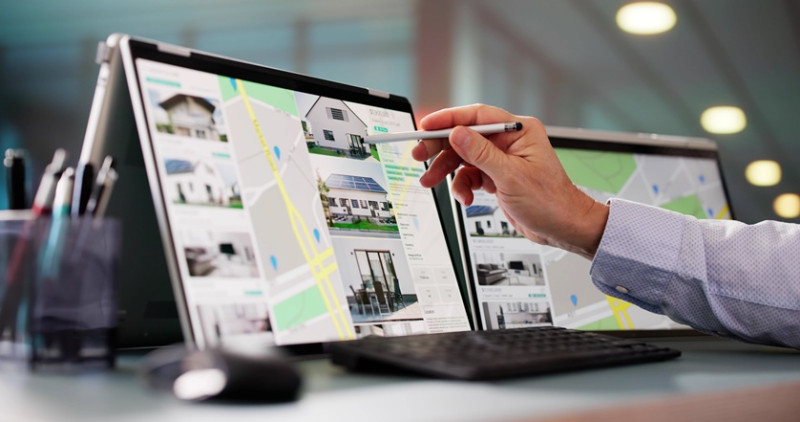
Whether you're a DIY enthusiast, a young professional embarking on your first home transformation, or a seasoned tradesperson managing multiple properties, understanding the fundamentals of property management is vital. Good property management ensures your investment remains safe, efficient, and profitable over time. From maintenance planning to tenant communication, this guide will walk you through the essentials of managing a residential property in the UK.
What is Property Management?
At its core, property management involves overseeing and coordinating the operational aspects of a residential or commercial property. This includes everything from ensuring timely repairs to maintaining legal compliance. For landlords, it means managing tenants and rentals; for homeowners, it often includes maintenance, renovations, and upholding property value.
Even if you’re managing your own home, applying principles of property management leads to long-term savings, fewer emergencies, and a well-maintained home. For professionals like designers or architects, understanding management basics helps streamline projects and align with homeowner expectations.
In the UK, property management also requires awareness of local laws, safety regulations, and financial responsibilities, such as council tax, utility billing, and adhering to tenancy laws when applicable.
Whether you manage a single flat or a portfolio of rental homes, a structured approach to property care is the key to success.
Key Responsibilities in Property Management
Property management responsibilities vary based on the type of property and ownership structure, but several core duties remain consistent:
- Maintenance & Repairs: Regular inspections and proactive maintenance save money and prevent major issues.
- Tenant Relations: Clear communication, transparent contracts, and ethical treatment foster good tenant relationships.
- Budgeting: Track expenses, plan for large costs (like a new boiler or roof), and monitor rental income if applicable.
- Legal Compliance: Understand landlord laws, building codes, and property licensing requirements in the UK.
- Insurance: Ensure your property is covered with the correct insurance policy, including liability and building cover.
For those managing rental properties, handling rent collection and responding to tenant issues are also major aspects of daily operations. For homeowners, budgeting for seasonal upkeep and future renovations becomes key.
Routine Maintenance: Your First Line of Defence
Proper maintenance is one of the cornerstones of property management. A simple seasonal upkeep schedule can prevent high-cost repairs and ensure your property functions at its best year-round.
In the UK, where weather changes frequently and can be harsh, it’s crucial to carry out checks on roofing, guttering, plumbing, and heating systems regularly. Blocked gutters in autumn or a malfunctioning boiler in winter can become urgent problems without consistent oversight.
Schedule regular inspections for key systems such as:
- Central heating and boiler servicing (ideally annually)
- Roof inspections and tile replacement
- Gutter cleaning in spring and autumn
- Window and door seal checks to improve insulation
- Electrical safety checks
For landlords, there’s also the legal obligation to carry out gas safety checks annually and ensure smoke and carbon monoxide alarms are present and operational.
Working with Tradespeople and Contractors
Unless you're a great DIYer with time on your hands, you’ll likely need to work with professional tradespeople at some point. From emergency electricians to painters and decorators, having reliable contacts is a pillar of effective property management.
If you’re a designer or architect running a project, managing multiple contractors on-site becomes second nature. But even for homeowners, learning how to vet and communicate with tradespeople can save both money and stress.
Before hiring, check for professional qualifications (such as Gas Safe registration for heating engineers), confirm insurance coverage, and seek references or reviews. Clear contracts and written estimates help avoid disputes later down the line.
Also, consider building long-term relationships with reliable tradespeople. Especially for landlords or property investors managing several assets, quick response times from trusted contractors make property upkeep smoother and cost-effective.
Understanding Legal Requirements in the UK
The UK property market is highly regulated, particularly for landlords. Even if you're simply looking to rent out a spare bedroom or remodel a buy-to-let property, understanding your legal responsibilities is crucial.
Key legal requirements include:
- Gas Safety Certificates – required annually for all rented spaces with gas appliances.
- Energy Performance Certificates (EPC) – needed when renting or selling a property, with a minimum rating required for lettings.
- Electrical Safety Standards – periodic checks (every 5 years) are mandatory for all rental properties in England.
- Deposit Protection – tenant deposits must be held in a government-approved scheme.
- Licensing – certain properties, like HMOs (houses in multiple occupation), require special licenses from local councils.
Staying compliant doesn’t just protect you legally—it builds trust with tenants and can even improve your return on investment.
Property Management Tools and Software
Technology has made it easier than ever to manage properties efficiently. Whether you’re a sole homeowner keeping tabs on your maintenance calendar or a landlord managing ten rentals, there are tools to suit every need.
Some popular property management software platforms in the UK include:
| Software | Best For | Key Features |
|---|---|---|
| Arthur | Landlords & Large Portfolios | Tenant communication, maintenance tracking, accounting integration |
| Landlord Vision | Private Landlords | Reporting, tax tracking, legal compliance tools |
| Trello or Notion | DIY Enthusiasts & Homeowners | Custom task management, budgeting templates, visual boards |
| Fixflo | Letting Agents | Repair reporting automation, compliance help |
These tools help you keep track of everything from tenancy agreements to roofing inspections. Even apps like Google Calendar or Excel spreadsheets can be powerful in setting recurring maintenance tasks and logging costs.
Budgeting and Financial Planning
A well-managed property isn’t just in good repair – it’s also financially secure. Budgeting involves tracking income and costs, planning for large expenditures, and being prepared for the unexpected.
Some of the biggest annual or biannual costs for UK homeowners and landlords include:
- Boiler servicing or replacement
- Roof and gutter repairs
- Painting and decorating
- Insurance premiums
- Legal and safety certifications
Set aside funds monthly into a "property maintenance reserve" or sinking fund. This proactive approach eases the pain of large, unexpected expenses — such as water damage or appliance failure — and protects your property’s value for years to come.
For landlords, maintain records of rental income, deductions like mortgage interest, and allowable expenses to simplify self-assessment tasks each year.
Final Thoughts: Taking Control of Your Property
Property management may seem overwhelming at first, especially for new homeowners or those managing multiple properties. But with structured planning, the right tools, and a commitment to regular upkeep, it’s entirely manageable—and rewarding.
Whether you’re a young professional remodelling your first flat, a seasoned designer taking on major transformation projects, or a tradesperson adding property assets to your portfolio, mastering these property management basics gives you the confidence to protect and profit from your real estate investments.
Looking to take your property management strategy to the next level? Stay tuned for future guides, including seasonal maintenance checklists, cost-effective improvement tips, and digital tools every UK property manager should know.






